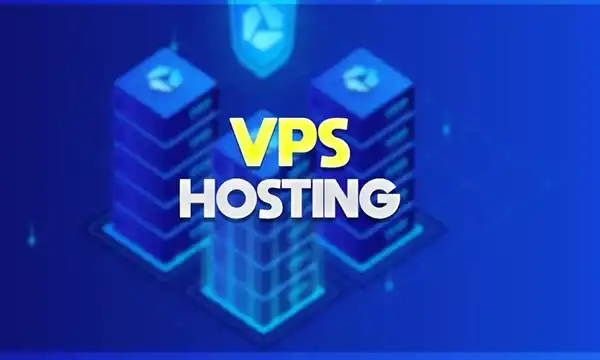Maximizing VPS Resources: Tips for Efficiency
Ad
Web hosting has become very important in the digital world, where websites and applications power business and personal projects.
Virtual Private Server (VPS) hosting is a flexible solution that can be used to meet a wide variety of hosting needs. It comes with private resources and customization options.
But even with these benefits, it’s still important to make sure your VPS resources are used in the best possible way.
Ad
In this article, we take a closer look at the strategies and techniques that can help you get the most out of your VPS hosting. This results in better performance, reliability and cost-effectiveness.
Understanding the Importance of VPS Resources:
Virtual private server hosting combines the best parts of shared hosting and dedicated servers. It is cheaper than shared hosting and gives you more freedom than a dedicated server. In a VPS environment, each virtual server works independently and has its own CPU, RAM and storage facilities. This ensures that the operation of other VPS instances on the same physical server does not affect the speed of one VPS instance.
Ad
Tip 1: Keep Track of Your Usage
The first step towards economy is getting an accurate picture of how your VPS resources are being used. By using powerful monitoring tools, you can keep track of important metrics such as CPU usage, memory usage, disk I/O, and network traffic. When you review this data regularly, you can see patterns, peak usage times, and potential bottlenecks. This allows you to proactively manage and optimize your resources.
Tip 2: Improve the Code of Your Apps and Websites
Efficient coding practices are an important part of getting the most out of your resources. Check the code of your programs and websites to find areas for improvement. Minimize unnecessary database queries, reduce duplicate code, and optimize image size to reduce the CPU and memory load on the VPS.
Tip 3: Use Caching to Your Advantage.
The caching method can act as a resource multiplier, greatly reducing the strain on your VPS resources. Use a content cache to store frequently accessed data, an object cache to speed up data retrieval, and a database cache to improve response times. Caching improves the user experience and saves valuable resources by reducing the processing requirements for multiple runs.
See Too:
Tip 4: Make Managing Your Database Easier
Dynamic websites and applications cannot function without a database. By properly managing your administration, you can make the most of your resources. Regularly clean up unnecessary data, optimize database tables, and build good indexes to speed up query processing. A well-organized database uses as little CPU and memory as possible, increasing speed.
Tip 5: Use a Content Delivery Network (CDN)
Information Delivery Networks (CDNs) are an important part of optimizing resources because they distribute information through a network of servers strategically placed around the world. A CDN offloads the VPS by serving content to the user from the server closest to the user. This makes pages load faster and easier to navigate.
Tip 6: Prioritize Light Applications
Applications that use heavy resources, such as video editing or data processing, can put a lot of strain on your VPS. If possible, try to offload these tasks to a service or server that is good at it. This approach keeps your VPS resources focused on serving your main website or application.
Tip 7: Update Your Software Regularly
Outdated software can leave security holes and lead to inefficient use of resources. Regularly update your operating system, server software and applications for better speeds, bug fixes and security patches.
Tip 8: Set Resource Limits
Many VPS hosting services allow you to limit the amount of resources each program or account can use. By setting limits on the amount of resources a program can use, you can ensure that resources are distributed fairly and that all services are running optimally.
Tip 9: Make Use of Content Compression
By using content compression such as GZIP, the amount of data that is sent between your VPS and your customer’s browser is reduced. This results in faster open times and uses fewer resources because less data needs to be sent over the network.
Tip 10: Delete Old Data Regularly
Over time, your VPS may accumulate data, logs, backups, and tools that are no longer useful. Clean up regularly to free up storage space and avoid wasting resources.
Conclusion:
Managing and optimising VPS resources well takes more than technical know-how; it has a direct effect on how well your online presence does. You can get the most out of your VPS hosting by keeping a close eye on how resources are used, optimising code, using caching strategies, and making strategic choices. Resource efficiency means that your site will run better, have less downtime, and give your guests a better experience.
FAQs:
1. Can VPS resources be recovered after they are fully utilized?
If your VPS resources are completely empty, you may experience slow performance or unresponsiveness. Some hosting providers offer temporary or permanent resource upgrades to address such situations.
2. Can I allocate more resources to specific applications in the VPS?
Many hosting providers offer resource allocation controls that allow you to allocate more resources to specific applications or accounts. This ensures a balanced distribution of resources.
3. Are there reliable tools to monitor VPS resource consumption?
Yes, various monitoring tools such as Nagios, Zabbix and Grafana can provide insight into your VPS resource consumption. Hosting providers often offer built-in monitoring tools as well.
4. How often should I optimize my application’s code and database?
Regular optimization is recommended, especially when introducing new features or updating website content. Conduct routine audits to ensure efficient use of resources.
5. If my optimization efforts negatively impact my site, can I revert the changes?
Yes, most optimization changes can be undone if they cause unexpected problems. It is recommended that you back up your website before making major changes so that you can restore it if necessary.
 Supercharge Your Website: The Magic of VPS Servers
Supercharge Your Website: The Magic of VPS Servers
Ad In the magical world of the internet, where websites are digital stores and gateways to a […]
More Ensuring Website Security: VPS Server Measures
Ensuring Website Security: VPS Server Measures
Ad In today’s connected world, where the Internet is a way for businesses to connect with customers, […]
More Scaling Your Website with VPS Hosting
Scaling Your Website with VPS Hosting
Ad In today’s digital world, where websites are key to brand awareness and user engagement, the importance […]
More